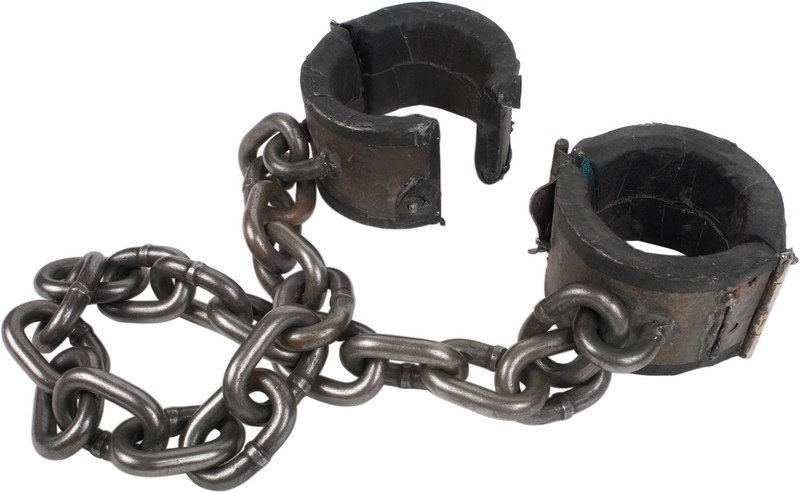Rusty Reno’s recent book Return of the Strong Gods opened my eyes to some of the reasons why relativism has gained such a foothold in Western society. He shows how, after the second world war, a group of thinkers, philosophers, economists, political strategists, literary figures and theologians all began to believe that the wars that tore apart Europe for the last five hundred years were the fault of dogma.
I can see why they thought that. Beginning with the wars of religion after the Protestant Revolution, Europe was torn asunder time and again because of opposing beliefs. Often it was religious beliefs, but then it became political, economic and social. If dogma caused division, strife and eventually war, then let’s get rid of dogma. “Can’t we just get along?” This trend had an impact on theology and ecumenism as well. Post war Catholic theologians turned away from the rigid dogmas and definitions of scholasticism and began re-interpreting the faith in more open ended ways. Instead of dogma a “pastoral” solution was to be found. Instead of definitions and devotions that divide they came up with practical solutions to thorny problems. In the realm of ecumenism, by looking together with Protestants at what we share progress was made taking both sides away from the dogmas that divide towards the shared beliefs that unite. In theological ecumenical discussions the drive was to “recast and re-imagine the ageless doctrines and re-frame them with new formulations that all could agree to.
I get that. I can see the advantages to such a process and I can understand how people were looking for solutions to the problem of war and revolution in Europe.
However, the relativism that resulted from the abandonment of dogma brought with it a whole new set of problems that could not have been foreseen, and they have to do with the leaky nature of relativism itself.
But first, why do I say that “dogma liberates”? It does liberate, but only if it is kept in its proper place and in the proper balance. The post war thinkers were right that dogma–in and of itself–tends toward division, strife and war. When we espouse a dogma it is human nature to suspect those who do not follow the same dogma. We gather into our tribes of people who believe like we do and we see the “others” as a threat. They must be converted. They must be either converted or eliminated. But this is a distortion of dogma which naturally follows, but needn’t necessarily follow. This occurs when dogma is treated as the end point rather than a means to an end.
What is the true role of dogma–and all belief based rules, regulations, rubrics and doctrines? They are necessary as rules are necessary for a game or the musical score is necessary for music to be played. The doctrines and dogmas are the map for the journey, but they are not the journey. They are the rules for the game, but not the game. They are the music on the score, but not the music. They are the ladder we climb on, but not the ascent. It is only when dogma and doctrine–rules and regulations are kept in their proper place that they become liberating rather than enslaving. When they are operating as the map for the journey they actually become a source of unity and agreement rather than a source of division, and if another person cannot agree to the dogmas and doctrines there is no need to coerce them any more than an athlete would need to coerce another person to play the game with him. Of course, if the person does want to play the game they must agree to the rules, but if they do not, holding to dogma in the right way means we grant them freedom not to believe and freedom to follow their own beliefs.
Dogma, therefore, is liberating because it gives one the framework of belief and the certainty of structure and order by which to go on the great adventure.
This is the paradox: that dogma which seems to be rigid and restrictive actually liberates. Likewise, relativism, which seems to liberate, eventually enslaves.
How so? Because human beings cannot live for very long with relativism. We cannot live without a creed, and if we have no creed we will soon devise one. We cannot live without dogma, and if we do not have one we will soon devise one, and what we devise are ideologies. An ideology is an idea that is singular. It is one idea that rules them all and in the darkness binds them. So those who jump into the swamp of relativism soon find themselves sinking in quicksand. They need something to hold on to. They need a cause to live for. They need a belief system even if they deny that they need one.
So in our society today we are seeing the sprouting of any number of ideologies–most of them borrowed in one way or another from the core values of Christianity. Tom Holland’s recent brilliant book Dominion shows how all the ideologies over the last two thousand years have sprung from the core dogmas and values of Christianity. The sprouting of these ugly ideologies is the result of relativism. With nothing secure on which to grasp people come up with a cause on which to campaign and with it, a set of beliefs.
What is an example of a modern ideology? Feminism. Homosexualism. Environmentalism. Anti-racism. Fundamentalism. Neo-Puritanism. Nationalism. Globalism. Fascism. Communism. Socialism….You name it. It doesn’t matter whether they are “right” or “left”. They are all ideologies–world views and philosophies that are driven by a single idea–a lens through which everything else is viewed and a false god before whom all must bow.
Why do I say this “enslaves”? Because the ideologue is far more intolerant and “dogmatic” than the person who holds properly to dogma. History shows that the ideologues allow no dissent. They allow no interpretation, nuance or ambiguity. The ideologue does not engage in discussion. He will begin with condescending toleration of your view, then he will move to ignore you. Then he will move to isolate and silence you. Then he will move to exclude you. Then he will move to eliminate you. Then he will finally choose the final solution.
You don’t have to be a medieval theologian to figure out that many people down the ages who have been religious have actually been ideologues. The sad truth is that many people who adhered to the Christian religion used that religion as an ideology not as a religion. They were enslaved by their religious ideology and like all idealogues, they used their ideology to enslave, persecute and even kill others. Furthermore, being religious types they used their dogma also as a weapon in their ideological armory. These are the most fearsome enemies of Christ and his gospel…not only the atheists and ideologues outside the church, but the ones within.
Therefore dogma liberates. Relativism enslaves.
These are the signs of the times.
Read them and beware.







“after the second world war, a group of thinkers, philosophers, economists, political strategists, literary figures and theologians all began to believe that the wars that tore apart Europe for the last five hundred years were the fault of dogma.” . . . “If dogma caused division, strife and eventually war, then let’s get rid of dogma.”
My, my, isn’t that special.
Dogma is defined as incontrovertible truth set by an authority. Dogmatic truth was set by Jesus Christ, His chosen Apostles, and the Church He established, guided by the Holy Spirit (John 14, 15). So, yes, let’s get rid of dogma. Zap!
Let’s NOT first explain how dogma is related to the teachings of Christ and His Church. And let’s NOT make clear that our wars and strife are caused by those who think they know better than Christ and by those who want to grab a piece of the action for themselves. Today’s polite title is Moral Relativism.
But let us remember that Christ commanded: Go and teach. If they reject the teaching, shake the dust from your sandal and go elsewhere. Christ did not command war to enforce dogma.
The visual that I like to use is that dogma are the guardrails that keep us from going over the cliff into the abyss.
With so many of our dogmas under attack, I find myself having to defend them almost on a daily basis. The truly diabolical thing about it is that I can see how Satan can use our love of truth and twist it to make us deny one of the greatest commandments: love your neighbor as yourself. I catch myself harboring hatred for the people that disagree with me. Humility and honest self-assessment helps me catch myself when this starts happening. Divine providence plays its hand in this because whenever I find myself slipping, I happen to stumble on an article like this, and it prods me to repent of the evil in my heart. Thanks Father for being an instrument of Divine Will.